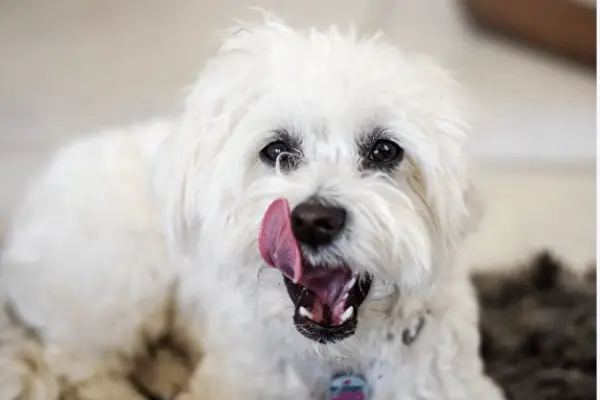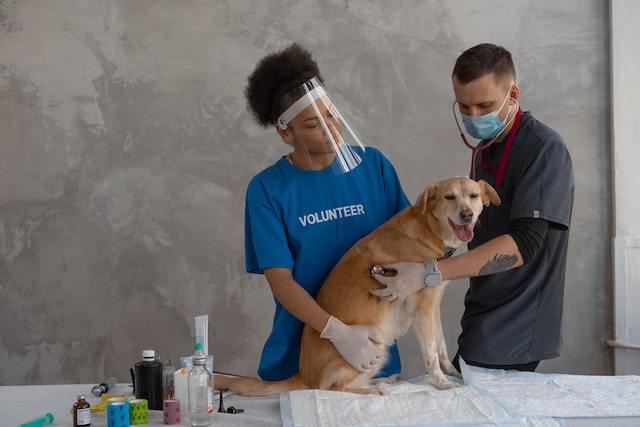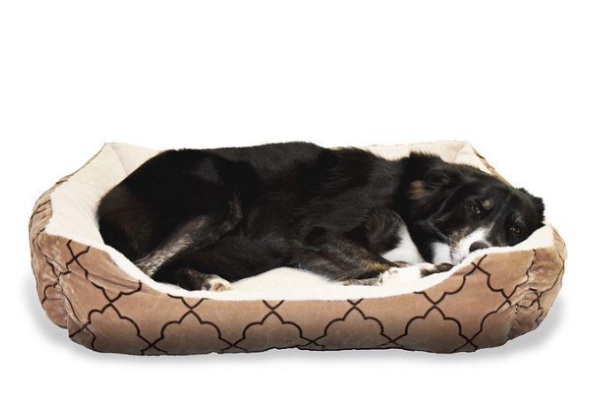Dog Hiding Under Bed And Not Eating [Helpful Tips]
![Dog Hiding Under Bed And Not Eating [Helpful Tips] Dog Hiding Under Bed And Not Eating](https://petcreeks.com/wp-content/uploads/2023/02/Dog-Hiding-Under-Bed-And-Not-Eating.jpg)
Does your pooch seem to be hiding under the bed and not eating? If so, your first thought may be that something is wrong.
But the truth is that there are a variety of reasons why your four-legged friend might be exhibiting this behavior.
In this blog post, we’ll explore the various scenarios that can lead to a dog hiding under the bed and not eating and what you can do to help them.
From dietary changes to environmental factors and more, we’ll look at all the possible causes and solutions, so your pup can get back to feeling its best.
So, let’s get started!
Dog Hiding Under Bed And Not Eating
If your dog is hiding under the bed and not eating, it could be a sign of fear, illness, or a change in the environment.
Fearful dogs may hide in small spaces to feel safe, while illness can cause a decrease in appetite and cause your dog to seek out a comfortable spot to rest.
It is important to take your dog to a veterinarian to rule out any medical issues, and to identify any changes in the environment that may be causing distress.
Additionally, providing a safe space for your dog to retreat to, such as a crate, can help them feel more secure.
Reasons For A Dog Hiding Under Bed And Not Eating
Here are some common reasons for your dog to hide under the bed and not eat:
Changes in routine
Dogs thrive on regularity and routine.
They may experience anxiety and lose their appetite when their pattern is altered, such as a change in feeding time or a change in walking schedule.
They might find solace in hiding under the bed as they adjust to the changes.
You can try introducing the new pattern gradually and giving lots of positive reinforcement to assist your dog get used to the change.
Moreover, you might try giving familiar objects and maintaining a regular feeding and walking routine.
Separation anxiety
When their owners leave the house, dogs who have separation anxiety may become anxious and stressed.
They may use hiding under the bed as a coping mechanism for their anxieties.
While their owners are not around, they could get disinterested in food.
You can try progressively desensitizing your dog to your absence by leaving them alone for brief amounts of time and then gradually extending those periods in an effort to assist them to manage separation anxiety.
Also, you can provide them with a cozy place to retreat to when you’re away.
New environment
A new setting, such as a new home or a new family member, can take some time for dogs to become used to.
Hiding beneath the bed can be an indication that they are still uneasy and uncertain in their new environment.
It’s crucial to give dogs lots of time and tolerance because they can take some time to acclimatize to a new environment.
To make them feel more at ease, try giving them familiar objects, such as their bed or toys, and creating a regular schedule.
Trauma or abuse
Your dog may utilize hiding beneath the bed as a coping method if they have previously been subjected to strain or abuse.
Moreover, they could link eating to the upsetting incident, making them avoid food.
It’s crucial to give your dog a secure and comforting environment if they have endured trauma or abuse.
Working with a qualified canine behaviorist to help them overcome their anxieties and form wholesome associations with food and other stimuli can be a part of this.
Illness
Your dog may be showing signs of being sick if they are hiding under the bed and not eating.
It’s vital to keep an eye out for additional indications of illness in dogs, such as vomiting, diarrhea, or lethargic behavior.
It’s crucial to take your dog to the vet for a checkup if you think your dog may be ill.
Fear
Dogs can experience fear or anxiety for a variety of causes, including loud noises, unfamiliar individuals, or adjustments to their routines.
They may find solace and security by hiding under the bed.
Their appetite may be negatively impacted by anxiety, making them less interested in meals.
You can strive to make a peaceful and secure atmosphere for your dog if they are scared or worried.
Providing them with a nice den or box to go to, using relaxing music or pheromone sprays, and avoiding situations that make them anxious are some ways to achieve this.
A qualified dog behaviorist can help you create a behavior modification plan if the situation is serious.
Dental problems
Dogs who have painful dental problems may find it challenging to eat.
As a means to cope with the discomfort, they can hide under the bed.
You can take your dog to the vet for a dental examination and treatment if they are having dental problems.
Offering food that is simpler for them to chew and swallow, such as soft or moist food, is another option.
Digestive problems
Dogs may be reluctant to eat if they are experiencing digestive problems like diarrhea or constipation.
Examine your dog for indicators of intestinal issues if they are hiding under the bed and not eating.
You can bring your dog to the veterinarian for a checkup and treatment if they are having digestive problems.
You could also try serving easily digested food in small, regular meals.
Aging
Dogs’ appetites may decline as they get older.
This may be caused by a number of things, including oral problems or modifications in their metabolism.
They may be able to snooze and preserve energy by hiding under the bed.
Dogs’ diets and exercise regimens may need to be modified as they become older.
To create a senior dog care strategy that takes into consideration their evolving requirements, you can speak with your veterinarian.
Medical treatment
Your dog may feel sick and lose their appetite if they are receiving medical treatment, such as chemotherapy or radiation therapy.
They could find solace in hiding under the bed to help them get through the discomfort.
If your dog is receiving medical care, you can work with your veterinarian to create a plan to deal with any sickness or appetite loss.
It could be necessary to change their medication or serve them smaller, more frequent meals.
Depression
Dogs are social creatures and, like people, they can experience depression. If they are feeling depressed or lonely, they can crawl under the bed and avoid eating.
Dog depression can be brought on by a number of things, such as the death of a companion animal, the absence of the owner, or alterations in the surroundings.
Recognizing the symptoms of depression in dogs is crucial since they might include lethargy, a loss of interest in activities, and adjustments to appetite or sleeping habits.
To rule out any underlying medical conditions and to go over treatment options like medication, behavior modification, and counseling, you should consult a veterinarian if you think your dog may be depressed.
Possible solutions to encourage dog eating and reduce hiding
To encourage your dog to eat and reduce hiding, there are several solutions you can try.
Firstly, make sure you are feeding your dog a balanced and nutritious diet with the correct amount of food for their size and activity level.
Additionally, you can try feeding your dog at regular times in a quiet place and make sure the food is tasty and appealing.
You can also try using treats as rewards when your dog eats their meal.
One strategy is to teach your dog a new behavior in order to get them to quit hiding under things so often.
Ignore your dog if it is hiding beneath the bed.
But, reward them when they’re lying on a mat or rug.
If you persist, your dog will probably ultimately pick up new behaviors.
Finally, make sure to give your dog enough exercise and mental stimulation, as an active and engaged dog is more likely to eat and less likely to hide.
When to seek professional help
A medical condition or behavioral issue may be at play if your dog is hiding and refusing to eat.
If the problem persists, or you have any worries regarding your dog’s health, you should seek professional assistance from your veterinarian and an expert in animal behavior.
Moreover, you should seek quick veterinarian care if you detect any other alarming symptoms including vomiting, sluggishness, or behavioral abnormalities.
Conclusion
In conclusion, many dog owners find themselves faced with the challenge of a pet that is hiding under the bed and not eating.
It can be a sign of anxiety, stress, or health issues, and it’s important to address the underlying cause as soon as possible.
With patience and understanding, you can help your pooch get back to its happy and healthy self and start enjoying life again.




![What Do Shih Tzus Usually Die From [10 Things] What Do Shih Tzus Usually Die From](https://petcreeks.com/wp-content/uploads/2023/04/What-Do-Shih-Tzus-Usually-Die-From-768x555.jpg)

